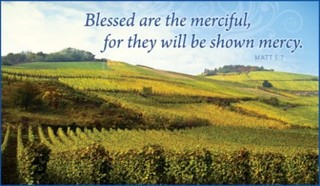
- Recent Translations
- All Translations
Matthew 5:24 Meaning and Commentary
Leave there thy gift before the altar
This might easily be done, and the business soon dispatched, at some seasons; particularly, at their public feasts, as the passover, pentecost, and feast of tabernacles, when all the Israelites were together:
and go thy way;
make what haste thou canst,
first be reconciled to thy brother:
use all means to reconcile him; acknowledge the offence; ask his pardon; assure him that thou wishest well to him, and not ill;
and then come and offer thy gift,
by putting it on the altar, before which it was left. This shows, that acts of love and friendship are preferable to sacrifices; and that sacrifices offered up in wrath, and whilst unreconciled to others, are unacceptable to God, and of no avail: and so much the Jews themselves seem to acknowledge; when they say F5:
``that transgressions, which are between a man and God, the day of atonement expiates; the transgressions which are between a man and his neighbour, the day of atonement does not expiate, (wrybx ta huryv de) , "until he hath reconciled his neighbour."''Which is enlarged upon, and explained by Maimonides F6, after this manner:
``the day of atonement does not expiate any transgressions, but those that are between a man and God, as when one eats anything that is forbidden, and lies with anything that is forbidden, or the like; but transgressions which are between a man and his neighbour, as he that hurts his neighbour, or curses his neighbour, or steals from him, and the like, are never forgiven, until he has given his neighbour what he owed him, and has "reconciled" him; yea, though he has returned to him the money he owed him, he ought to "reconcile" him, and desire him to forgive him; yea, even though "he has only provoked him by words", (which is the very case in the text before us,) (woyypl) (Kyru) , "he ought to reconcile him", and to meet him until he forgives him: if his neighbour will not forgive, he must bring with him three of his friends, and meet him, and entreat him; and if he will not be reconciled by them, he must bring them a second, and a third time.''So that he was to use all means to obtain a reconciliation.
F5 Misn. Yoma, c. 8. sect. 9.
F6 Hilchot Teshuba, c. 2. sect. 9. Vid. T. Bab. Yoma, fol. 87. 1.

